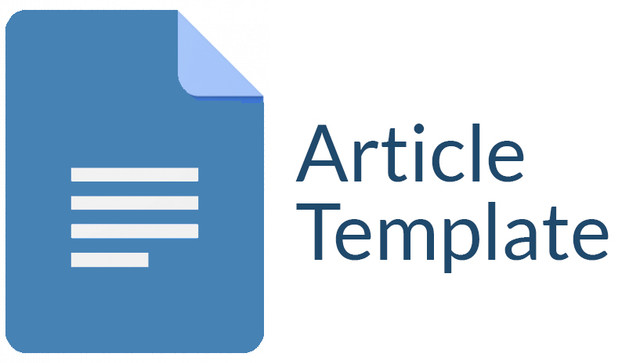Peningkatan Hasil Belajar Fisika Melalui Penerapan Media Pembelajaran E-Learning Berbasis Schoology: Studi Kasus di SMAN 1 Karangdowo.
DOI:
https://doi.org/10.30736/seaj.v2i1.192Keywords:
E-Learning Schoology, physics, learning outcomes, senior high school.Abstract
The purpose of this research was to find out the Influence of E-Learning with Schoology on physics learning. The success indicators in this study is cosidered when at least 75% of students were able to passed the required standard minimum score. The reseach aims to evaluate the effectiveness of E-learning schoology to increase the level of understanding in learning physics at Karangdowo 1 Senior Highschool (SMAN 1 Karangdowo). The research was built upon the classroom observation to 35 students from the class of XI IPS 4. The research will begin on July 16 until August 20, 2019. The duplicated data containing three meeting on each cycle were recodered at two observational points: pre- and post-application cycles of the learning strategy. The students learning ability meassured by pre-cycle posttest was estabished as an initial baseline., following by recorded the improvement of the latter after the E-learning schoology has been applied. The result have shown that students understanding level in learning pysics is increased by 10.71% depicted by the increasing number of students (in percentage) that passed the standard minimum grade 70, on pre-cycle (25.7%) compared with the post-cyle (51.4 and 85.71%). The latter two scores were obtained from the post cycle-posttest scores after the application of the basic E-learning schoology and its associated modification method, respectively.Therefore, it can be concluded that the E-learning schoology can be considered as a promising method to increase learning outcomes for senior high school students in learning physics.Downloads
References
Adelia. (2014). adelia edukasi. Retrieved from www.adelia.web.id: http://www.adelia.web.id/contoh-ptk-penelitian-tindakan-kelas/
Aminoto, T. (2014). Penerapan Media E-Learning Berbasis Schoology untuk Meningkatkan Aktivitas dan Hasil Belajar Materi Usaha dan Energi di Kelas XI SMA N 10 Kota Jambi. Jurnal Sains dan Matematika Universitas Jambi.
Azizah. (2017). Pengaruh Penggunaan E-Learning dengan Schoology. Retrieved from Azizah-Pakultas Keguruan dan Ilmu Pendidikan: file:///C:/Users/WN10/Zotero/storage/LCGZJQQR/Azizah%20-%20FAKULTAS%20KEGURUAN%20DAN%20ILMU%20PENDIDIKAN%20UNIVERSITAS%20.pdf
Fidiatun at al.,. (2018). Penerapan Blended Learning Berbasis Aplikasi Schoology Sebagai Upaya untuk Meningkatkan Hasil Belajar Administrasi Humas dan Keprotokolan. paedagogia Jurnal Penelitian Pendidikan.
Hernani at al.,. (2019). Peningkatan Nilai Kognitif Biologi Menggunakan Model Blanded Learning Berbasis Schoology Peserta Didik Kelas X4 IPA SMA N 4 Metro Tahun Pelajaran 2018/2019. BIOEDUKASI Jurnal Pendidikan Biologi e ISSN 2442-9805 Universitas Muhammadiyah Metro p ISSN 2086-4701.
Khafid et al.,. (2019). Optimalisasi Lingkungan Sekitar Sekolah Sebagai Alternatif Laboratorium IPA. Science Education and Application Journal (SEAJ). Vol. 1. No. 2: 74-83.
Kusumantara at al.,. (2017). Pengaruh E-Learning Schoology terhadap Hasil Belajar Simulasi Digital dengan Model Pembelajaran SAVI. Jurnal Pendidikan Teknologi dan Kejuruan Vol. 14, No. 2, Juli 2017, Hal :126 P-ISSN : 0216-3241 ; E-ISSN : 2541-0652, 126.
Madeamin, I. (2012). Model PTK (3): Model Spiral dari Kemmis & Taggart. Retrieved from Ishaq Madeamin | BLOG: http://www.ishaqmadeamin.com/2012/11/model-ptk-3-model-spiral-dari-kemmis.html
Michael. (2013). pengertian dan karakteristik e-learning. http://scdc.binus.ac.id/himsisfo.
Murthosyiya. (2017). Penggunaan Schoology Sebagai Media Pembelajaran Sejarah Untuk Meningkatkan Hasil Belajar Siswa Kelas X Tab 3 Smkn 1 Singosari . repository.um.ac.id.
Rahmadianto, P. (2017). Pemanfaatan Schoology sebagai Media Pembelajaran dalam Meningkatkan Hasil Belajar Dasar Jaringan Pada Siswa Kelas X Multimedia SMK Negeri 3 Surabaya . Jurnal IT – Edu. Volume 01 Nomor 02 Tahun 2016, 82 - 87 .
Safriana dan Marina. (2019). Capability Analysis of Pedagogical Content Knowledge (PCK) of Preservice Physics Teachers on Microteaching. Science Education and Application Journal (SEAJ). Vol. 1, No. 2:62-67. Retrieved from Science Education and Application Journal: http://jurnalpendidikan.unisla.ac.id/index.php/SEAJ
Septaria, K. (2019). Mengeksplorasi Argumentasi dan Pengetahuan Pendidik Ilmu Pengetahuan Alam (IPA) Tentang Pemanasan Global [Exploring the Arguments and Knowledge of Natural Sciences (IPA) Educators on Global Warming]. PEDAGOGIA: Jurnal Pendidikan, 8(2), 247-256.
Septiani at al.,. (2019). Pengembangan Instrumen Tes Literasi Sains Pisa Aspek Menjelaskan Fenomena ilmiah Kelas VII. Science Education and Application Journal (SEAJ). Vol. 1 No. 2: 46 – 55. Retrieved from . (2019). Pengembangan Instrumen Tes Literasi Sains Pisa Aspek Menjelaskan Fenomena Ilmiah Kelas VII. Science Education and Application Journal (SEAJ). .
Ulva at al. (2018). Penerapan E-Learning Dengan Media Schoology Untuk Meningkatkan Motivasi Dan Hasil Belajar Siswa Pada Kompetensi Dasar Mendeskripsikan Konsep Badan Usaha Dalam Perekonomian Indonesia. Jurnal Pendidikan Ekonomi: Jurnal Ilmiah Ilmu Pendidikan, Ilmu Ekonomi Dan Ilmu Sosial.
Wati dan Asnita. (2016). Peningkatan Motivasi dan Hasil Belajar biologi siswa Kelas XII Melalui Penerapan Pembelajaran E-Learning Schoology SMAN 8 Pekanbaru Riau. jurnal pendidikan.
Published
How to Cite
Issue
Section
License
Authors who publish with this journal agree to the following terms:
- Authors retain copyright and grant the journal right of first publication with the work simultaneously licensed under a Creative Commons Attribution-ShareAlike 4.0 International License that allows others to share the work with an acknowledgment of the work's authorship and initial publication in this journal.
- Authors are able to enter into separate, additional contractual arrangements for the non-exclusive distribution of the journal's published version of the work (e.g., post it to an institutional repository or publish it in a book), with an acknowledgment of its initial publication in this journal.
- Authors are permitted and encouraged to post their work online (e.g., in institutional repositories or on their website) prior to and during the submission process, as it can lead to productive exchanges, as well as earlier and greater citation of published work (See The Effect of Open Access).

This work is licensed under a Creative Commons Attribution-ShareAlike 4.0 International License.










